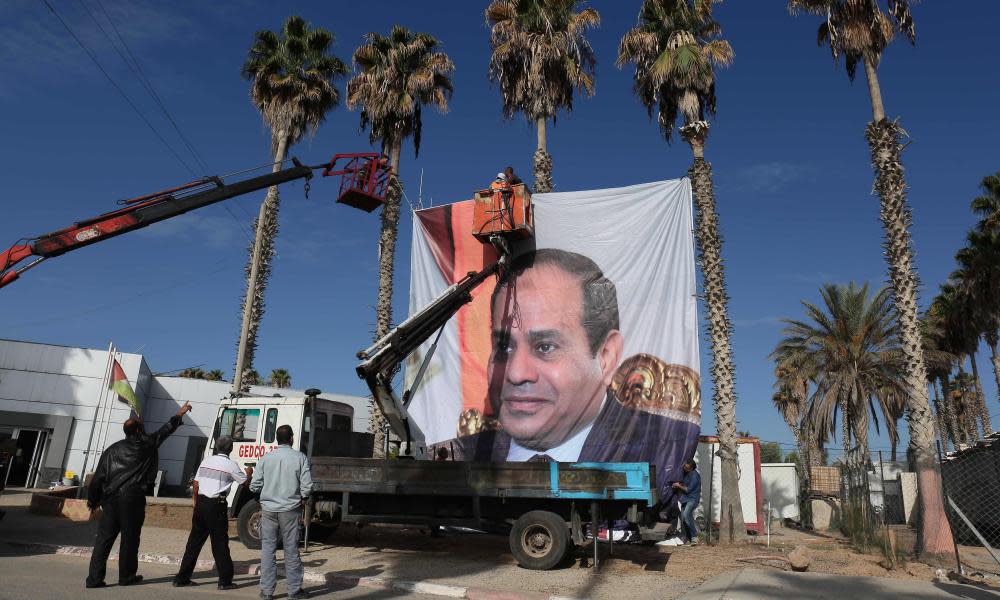The readers’ editor on repressive regimes and press freedom | Stephen Pritchard

News is not merely a daily record of events – it is the narrative of our lives. It defines who we are and where separate nations fit into the story of one wider, shared world. Take away that narrative, as happens so often in repressive regimes, and a nation and its people start to lose their identity.
Any regime that stifles a functioning press is not only depriving its citizens of the fresh air of news, it is denying the world the opportunity to understand that nation and risks natural curiosity being replaced with wariness and suspicion, which, in turn, can lead to hatred, even conflict.
If a nation wants to be understood and accepted, to trade freely in knowledge and goods, to allow its people to prosper and learn, it has to accept a free flow of information. The truth is that so many nations plainly do not want the world to understand them, preferring, instead, to suppress news and jail journalists who tell uncomfortable truths.
The explosion in access to global information is a modern marvel, but it can come at a terrible price for those who write and edit. According to the Committee to Protect Journalists, 34 have been killed so far this year, with 259 imprisoned last year and 55 missing.
Last year, the CPJ reported that Turkey had at least 81 journalists behind bars. It said China, which was the world’s worst jailer of journalists in 2014 and 2015, dropped to second spot with 38 journalists in jail. Third place was allotted to Egypt, with 25 journalists imprisoned (although the Egyptian Press Syndicate recorded 29).
Since I last visited Cairo nearly three years ago to write about the press, the increase in human rights abuses has been stark. There are an estimated 60,000 political prisoners in the country’s jails; dissenters are labelled as militants and tried in military courts; extrajudicial killings are on the rise; Human Rights Watch (whose website is banned in Egypt) claims torture has become routine in the country’s jails and probably amounts to a crime against humanity.
Reliable sources say that journalists who dare to question the official regime narrative are harassed, arrested and, in some cases, tortured. Egyptians who do manage to articulate any opposition to the current government are labelled terrorists, as are any reporters who attempt to tell their stories.
Against this backdrop, why then would I return to Egypt to talk about that most fragile of subjects – press freedom? As a readers’ editor, I am often asked to talk about media ethics, accountability and journalism. I have travelled to Bosnia, Kosovo, Turkey, Northern Cyprus, Hungary, Macedonia and Colombia – all nations with questionable records on press freedom – to take part in discussions and panels. I believe it is better to engage in dialogue and to attempt to offer ideas and support to journalists than to stay away, but it can also lay one open to accusations of collusion, as I discovered recently at what was billed as the World Youth Forum in Sharm el-Sheikh.
Thousands of young people from all over the globe were to gather under a banner proclaiming “We Need To Talk”, but my single day at the conference revealed that this was more an exercise in presenting Egypt to the world than a truly global discussion. Despite arriving with some carefully chosen words about press freedom and the need for young people to defend it in their own countries, I found myself placed in a vapid general discussion on the Egyptian press.
In an attempt to put things in a global context I presented a map of the world with press freedom rankings, produced by Reporters Sans Frontières. In a league of 180 nations, Egypt lies near the bottom at 161, but Egyptians won’t know this as the RSF website is banned there. I made the point that multiple pieces of legislation inhibit the media in most nations (notably the UK).
Of course, none of this compares to the dangers facing journalists in countries such as Egypt, but because I did not make this abundantly clear (coupled with a clumsy attempt to talk about cultural difference in reporting, remarks I later withdrew), I have been attacked as a tool of the regime, coupled with demands to know how much I was paid to be there (answer: nothing).
How quickly one’s good intentions can turn sour. At least here I can lay out the facts about Egypt and unequivocally condemn the treatment of journalists in that troubled land.
Robert Mahoney, the deputy executive director of the CPJ, says a barrage of anti-press rhetoric from Donald Trump undermines the role of the press and potentially endangers journalists. Citing the terrible attack on the al-Rawdah mosque in Sinai, he said: “Labelling reporting you don’t like as ‘fake news’ sends a signal to authoritarian leaders globally that it’s OK to crack down on the press. It did not take the Egyptian foreign ministry long to seize on Trump’s attack on CNN International to try to draw attention away from the message to the messenger.”

 Yahoo News
Yahoo News 
